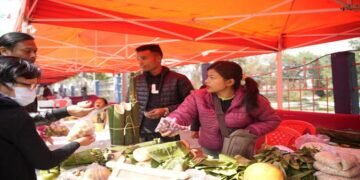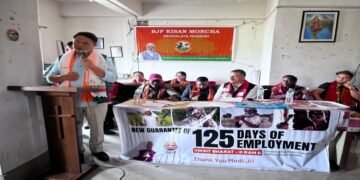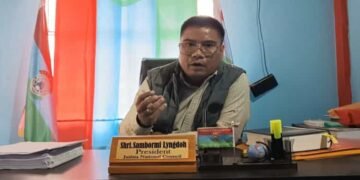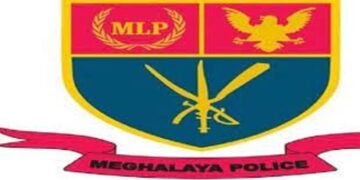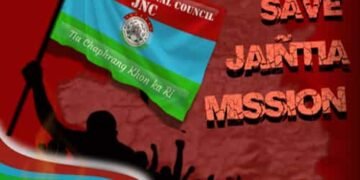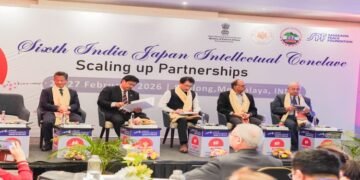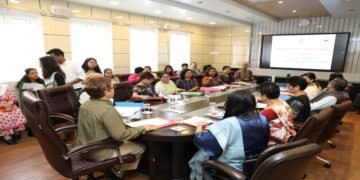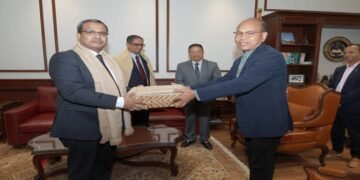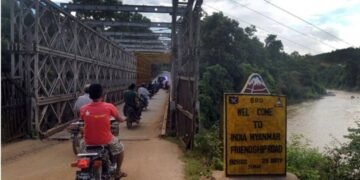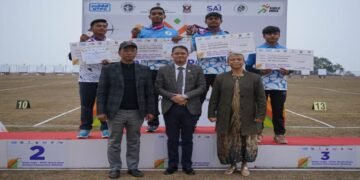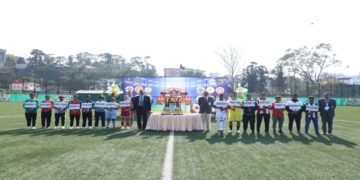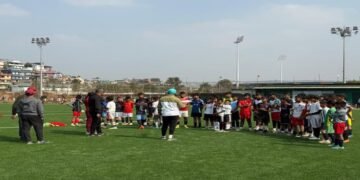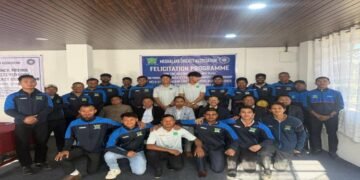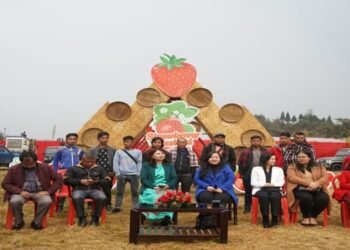Jowai ( Meghalaya), July 14 : One of the most important festivals of the Pnar people is the Behdeinkhlam which is celebrated in month of July before the seed-sowing season. This year after a gap of 2 years due to Covid pandemic the fest ended amid fanfare and traditional gaiety on Thursday .
Behdeinkhlam literally means ‘Chasing away the Plague’.
The excitement of this annual festival reverberated with the sounds of the traditional musical instruments – the bom and the tangmuri amidst revelry seen along the streets of the town.
Rituals and sacrifices are made by the priest accompanied by the beating of drums and flutes. Tall minarets are paraded to the holy ground and are then submerged in a river.
Men, both old and young accompany the drums and flutes with dance while the women stand watch in their finest traditional and heavily decked in gold. The festival is celebrated every year at Jowai Town and other villages of the Jaintia hills.
The main feature of the festival is the making of the “dein khlam”, “symlend” and “khnong”, which are rounded, polished and tall tree trunks, felled in a reserved forest.
After letting them lie in the woods for a couple of nights, the trunks are brought to the town with great fanfare. Later, these trunks are erected in each locality and in front of their houses .
Today , young boys , led by priests, carrying bamboo sticks and visited each home beating roof-tops to chase away evil spirits to the accompaniment of drums, cymbals and chanting in Pnar. The erected “khnong” is pulled down, broken and discarded.
The group of boys were offered home-brewed rice beer by the lady of the house.
Besides the bringing of the colourful rots made by different localities to Aitnar, one of the most anticipated moments of this festival is was the Symbud Khnong’-a log of great length was brought to Aitnar.
It is believed that those touching the Khnong are protected from all sorts of sickness besides bringing prosperity .
Today people united at Mynthong in their best attire to witness a ceremony synonymous to football known as the Dad-Lawakor. The contest is generally held between the Northern and the Southern Groups of people and it is believed that the group that wins usually gets a bumper harvest on the following year.



